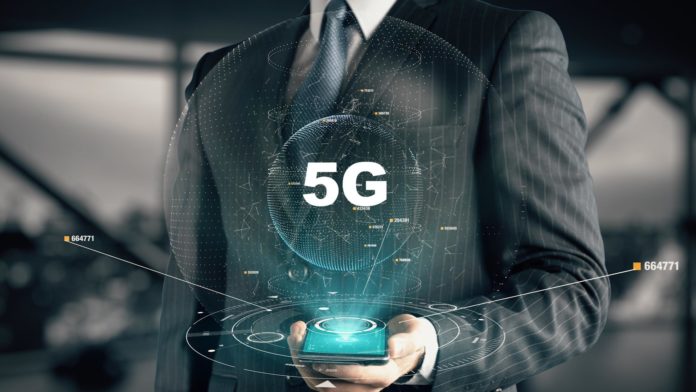by Arthur Firstenberg

Originally Published: January 29, 2019
Concerns about the upcoming launch of 5G radio telecommunications technology has prompted a mass petition against the move on safety grounds by thousands of scientists and related professionals.
Arthur Firstenberg writes:
Wireless Radiation: Stop The 5G Network On Earth And In Space, Devastating Impacts On Health And The Environment
To the UN, WHO, EU, Council of Europe and governments of all nations
We the undersigned scientists, doctors, environmental organizations and citizens from (__) countries, urgently call for a halt to the deployment of the 5G (fifth generation) wireless network, including 5G from space satellites. 5G will massively increase exposure to radio frequency (RF) radiation on top of the 2G, 3G and 4G networks for telecommunications already in place. RF radiation has been proven harmful for humans and the environment. The deployment of 5G constitutes an experiment on humanity and the environment that is defined as a crime under international law.
Executive summary
Telecommunications companies worldwide, with the support of governments, are poised within the next two years to roll out the fifth-generation wireless network (5G). This is set to deliver what is acknowledged to be unprecedented societal change on a global scale. We will have “smart” homes, “smart” businesses, “smart” highways, “smart” cities and self-driving cars. Virtually everything we own and buy, from refrigerators and washing machines to milk cartons, hairbrushes and infants’ diapers, will contain antennas and microchips and will be connected wirelessly to the Internet. Every person on Earth will have instant access to super-high-speed, low- latency wireless communications from any point on the planet, even in rainforests, mid-ocean and the Antarctic.
What is not widely acknowledged is that this will also result in unprecedented environmental change on a global scale. The planned density of radio frequency transmitters is impossible to envisage. In addition to millions of new 5G base stations on Earth and 20,000 new satellites in space, 200 billion transmitting objects, according to estimates, will be part of the Internet of Things by 2020, and one trillion objects a few years later. Commercial 5G at lower frequencies and slower speeds was deployed in Qatar, Finland and Estonia in mid-2018. The rollout of 5G at extremely high (millimetre wave) frequencies is planned to begin at the end of 2018.
Despite widespread denial, the evidence that radio frequency (RF) radiation is harmful to life is already overwhelming. The accumulated clinical evidence of sick and injured human beings, experimental evidence of damage to DNA, cells and organ systems in a wide variety of plants and animals, and epidemiological evidence that the major diseases of modern civilization—cancer, heart disease and diabetes—are in large part caused by electromagnetic pollution, forms a literature base of well over 10,000 peer-reviewed studies.
If the telecommunications industry’s plans for 5G come to fruition, no person, no animal, no bird, no insect and no plant on Earth will be able to avoid exposure, 24 hours a day, 365 days a year, to levels of RF radiation that are tens to hundreds of times greater than what exists today, without any possibility of escape anywhere on the planet. These 5G plans threaten to provoke serious, irreversible effects on humans and permanent damage to all of the Earth’s ecosystems.
Immediate measures must be taken to protect humanity and the environment, in accordance with ethical imperatives and international agreements.
5G will result in a massive increase in inescapable, involuntary exposure to wireless radiation
Ground-based 5G
In order to transmit the enormous amounts of data required for the Internet of Things (IoT), 5G technology, when fully deployed, will use millimetre waves, which are poorly transmitted through solid material. This will require every carrier to install base stations every 100 metres[1] in every urban area in the world. Unlike previous generations of wireless technology, in which a single antenna broadcasts over a wide area, 5G base stations and 5G devices will have multiple antennas arranged in “phased arrays” [2],[3] that work together to emit focused, steerable, laser-like beams that track each other.
Each 5G phone will contain dozens of tiny antennas, all working together to track and aim a narrowly focused beam at the nearest cell tower. The US Federal Communications Commission (FCC) has adopted rules[4]permitting the effective power of those beams to be as much as 20 watts, ten times more powerful than the levels permitted for current phones.
Each 5G base station will contain hundreds or thousands of antennas aiming multiple laser-like beams simultaneously at all cell phones and user devices in its service area. This technology is called “multiple input multiple output” or MIMO. FCC rules permit the effective radiated power of a 5G base station’s beams to be as much as 30,000 watts per 100 MHz of spectrum,[2] or equivalently 300,000 watts per GHz of spectrum, tens to hundreds of times more powerful than the levels permitted for current base stations.
Read More, Plus Videos HERE



[…] aggressive promotion of 5G has prompted 26,000 scientists to sign the UN Appeal, a document imploring the United Nations and all its member states to halt 5G. California is suing […]